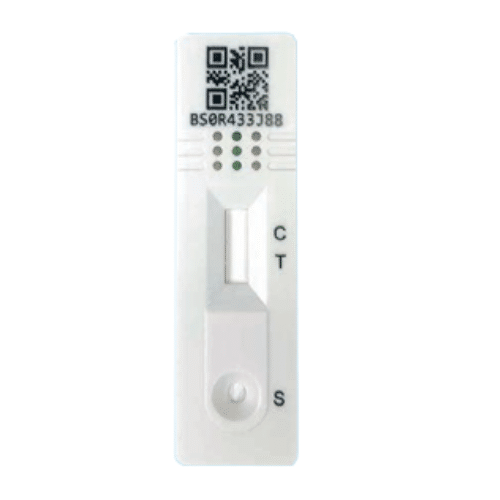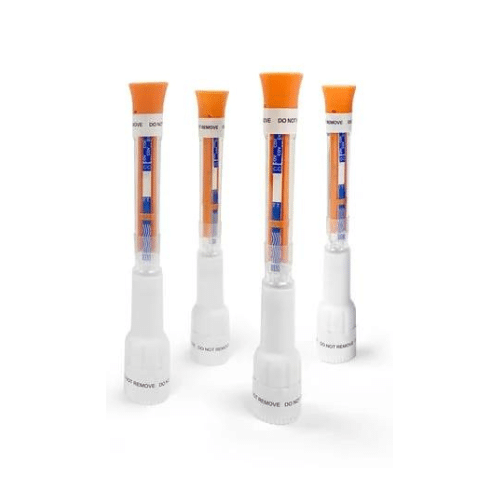Ecstasy or 3,4 -methylenedioxymethamphetamine (MDMA) is a synthetic stimulant drug. It also acts as a hallucinogen and entactogen. It is commonly known as ecstasy or molly. MDMA is manufactured in secret laboratories and packed in many forms like capsules, tablets, and powders. the question is, how long does ecstasy stay in your system?
Ecstasy: Substance Use and Abuse
Ecstasy is a well-known stimulant or club drug. This drug is related to euphoria, and it increases your energy and body temperature.
It does not have any established medical use. However, studies are ongoing to determine its effectiveness in treating anxiety.
Some of the ecstasy effects include giving you a pleasurable effect like feeling a closeness to others. And because of its pleasurable effects, there’s a high potential for ecstasy abuse. However, compared to opioids, cocaine, and alcohol, ecstasy abuse is much lower.
How Long Does it Take to Feel the Effects?
MDMA works by boosting dopamine, serotonin, and norepinephrine. These neurotransmitters affect mood, energy level, appetite, emotion, and sleep.
Serotonin specifically regulates your memory and perception. Dopamine gives you a pleasurable feeling and feelings of satisfaction. In contrast, norepinephrine stimulates your brain, which causes a boost in your energy.
If taken by mouth, the ecstasy usually takes effect within thirty (30) to forty- five (45) minutes upon taking the drug. The MDMA peaks in the system within one (1) to three (3) hours.
And it usually lasts for three (3) to six (6) hours.
What are the Effects of Ecstasy?
Ecstasy can be taken by smoking, snorting, injection, and by mouth. Some even insert the capsule or tablet in their rectum, referred to as “plugging” or “shafting.”
MDMA users may begin to feel euphoric rushes within twenty (20) to forty (40) minutes after swallowing the drug.
There are several side effects of ecstasy in the body. And they can occur for up to twenty-four (24) hours after taking the drug. Here some of them:
-
- Increased heart rate
- Rapid breathing
- Profuse sweating
- Nausea
- Decreased appetite
- Increased blood pressure
- Dehydration
- Teeth grinding
- Increased energy level
- Dry mouth
- Muscle cramps
- Blurred Vision or increased sensitivity to light
Aside from its effects in the body, here some of its impact on the brain:
-
- Increased feelings of love, peacefulness, and acceptance
- Increased sociability, intimacy, and empathy
- Anxiety
- Increased sex drive
- Lowered inhibitions
- Impaired judgment
- Loss of sleep
- Irritability
- Hallucinations
- Increased alertness
A week after ecstasy use, some of its side effects may persist. Here are some of them:
-
- Anxiety
- Decreased appetite
- Depression
- Impulsiveness and aggression
- Irritability
- Memory and attention problems
- Sleep problems
What are the Tests that Detects Ecstasy in the System?
Drug testing is screening tests for metabolites of certain substances in a person’s system. This test will determine if a person used a particular drug recently.
Each drug test has different detection windows. That means that each drug test has varied detection time. MDMA is not one of the five commonly screened drugs.
The amount of time ecstasy stays in the system depends on the type of drug tests. Here are the standard drug tests or MDMA test kit that screen a person’s body for substances.
Urine Tests
Many people also wonder how to test for MDMA. The body excretes substances like ecstasy in the urine. That is why the urine test is the most common type of drug testing. They will ask you to pee in a small cup.
Certain over-the-counter-drugs may cause a false-positive result. Some of those drugs are pseudoephedrine and certain antidepressants. Before taking the test, you should inform your test administrator that you are taking certain over-the-drugs.
Blood Tests
Blood tests are not frequently used for drug testing because they are somewhat invasive. So, most people prefer other drug tests than this. Aside from that, it can only detect for a short time.
When people take the drug by mouth, it reaches its highest blood concentration within two (2) hours.
Saliva Tests
The saliva test is another drug test people rarely use. After a person uses MDMA, it can detect substances for a short time.
Hair Follicle Tests
It is a drug test that most users dread taking. The reason behind this is that it is the most accurate and the hardest to cheat. It has a much longer detection window.
It means that it can detect traces of drugs for quite a long time.
How Long Does Ecstasy Stay in Your System?
Urine
Urine tests can detect the drug in your urine for two (2) to four (4) days after your last usage of MDMA.
Blood
MDMA stays in your blood for up to forty-eight (48) hours after its usage. It is actually four times longer than other substances like alcohol, amphetamines, and heroin.
Saliva
Ecstasy pill is detectable in the saliva within five (5) minutes. Then it remains detectable in the saliva for up to two (2) days after the last dose.
Hair
Ecstasy and most other drugs are detectable in the hair follicles for up to ninety (90) days after its use.
What are the Factors that Affect the Time Ecstasy Stay in the System?
To determine how long ecstasy stays in the system, you have to know that humans have different ways to process or metabolize ecstasy. For some, drugs like ecstasy stay in your system for several days.
Aside from metabolism, several other factors may affect the detection time. Here are some factors that affect the length of time drugs like ecstasy stay in your system:
Half-Life of Ecstasy
To fully understand the length of time MDMA’s stay in your system, you should know its half-lives. It refers to how long it takes the system to reduce the drug’s concentration by fifty (50) percent.
After four (4) half-lives, the body starts to excrete the drugs through urine, stool, or other wastes. Ecstasy’s half-life usually ranges from six (6) to nine (9) hours.
After several weeks, the effects of the drug wear off, and the substance leaves the system. But there is a specific drug test that can detect drug metabolites even after several weeks or months.
Dosage & Frequency
MDMA or ecstasy can stay in the system for a longer time if larger doses are taken. The system needs more time to process and metabolize the substance.
When people take multiple doses regularly, MDMA stays in the system for a longer time. Whereas for people who take it one-time, the substance is detectable in a shorter time.
With ecstasy, the drug may be detectable for up to five days or longer.
Body Type
People who have a higher body mass index may take longer to eradicate the drug from their system. It happens because drugs and substances accumulate in the fatty tissues of the body.
Age, activity level, gender, and health conditions can affect a person’s metabolism. A person with higher body weight and of older age takes longer to metabolize the substance.
With gender, men tend to process the MDMA faster than women.
A person with a higher metabolism rate usually has a lower detection window. Whereas for people who have a slower metabolic rate, their chance to be detected can get higher.
Health Condition
Certain health conditions may affect drug metabolism. Some of those medical conditions are liver or kidney disease. The liver and kidneys are known organs that are responsible for a person’s metabolism.
Disorder on those organs will significantly affect the system’s capability to metabolize the substance.
Other Substances
Other substances can slow down the metabolic process of the system. Such a substance is alcohol. Since it slows down metabolism, the length of time it takes to eliminate MDMA from the system may increase.
Method of Administration
The administration method of drugs may also affect the amount of time they stay in your system.
If a drug is injected, MDMA enters the bloodstream faster than swallowing it.
With injection and snorting, the drug is eliminated in the system faster.
How to Take Ecstasy Out of Your System?
Some people believe that you can take ecstasy out of your system by drinking a lot of water. They said that water could flush out the substance from your system.
But this isn’t the case with ecstasy because it can worsen the effect of ecstasy. The best way to clear ecstasy out of your body is to stop taking the drug. Allow your body time to metabolize and eliminate the drug.
What are the Symptoms of Overdose?
Ecstasy overdose and abuse can cause death. Another annoying thing about it is that it is difficult to know the lethal dose.
There are instances when users take another dose of the drug while still high with their first dose. If they take more doses than what their body can take, it can lead to a drug overdose.
Here are the symptoms of MDMA overdose:
-
- passing out
- high blood pressure
- loss of consciousness
- panic attacks
- seizures
Ecstasy overdose may occur because of the rapid heart rate that can lead to a heart attack. Severe dehydration, kidney failure, liver damage, and excessive bleeding may also worsen ecstasy overdose.
Aside from those, there are instances where a decrease in blood sodium level may cause cerebral edema. It will lead to the worst complications.
Addiction to Ecstasy
Many people say that ecstasy addiction is unlikely to happen. However, some users have reported symptoms of withdrawal. And those withdrawal symptoms could suggest dependence on drug use.
Some others indicated that addiction might occur. And this is due to ecstasy taken with some other addictive drugs like cocaine.
Getting Help for Ecstasy Addiction
Whether your questions about how long does Ecstasy stay in your system relates to MDMA withdrawal, a drug test, or perhaps a combination of factors, it can linger for a long time in your body.
If you’re struggling with Ecstasy problems and need the MDMA drug test kit, contact 12 Panel Now .
We’re Here to Help!
12 Panel Now provide the nation’s most affordable Drug Testing Supplies.
For Help Call 12 Panel Now at thestaff@12panelnow.com
FOR ALL ORDERS CALL: 561-897-9238






































